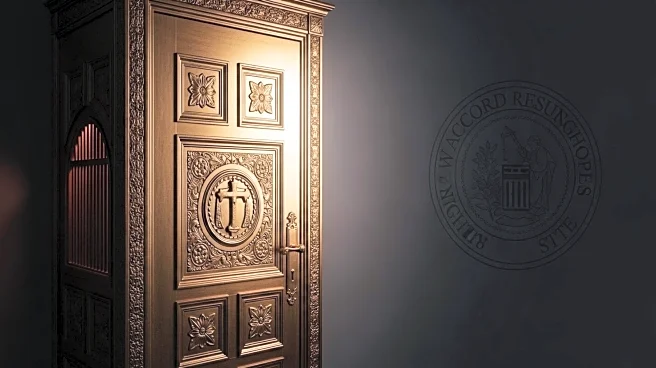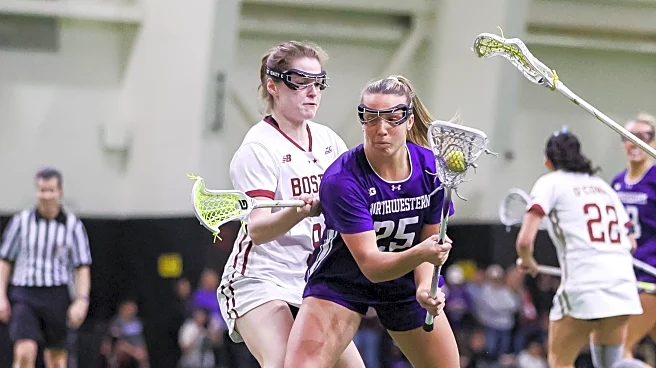What is the story about?
What's Happening?
Washington state's government and Catholic bishops have reached an agreement in a federal lawsuit concerning the state's mandatory reporter law, which could have forced priests to violate the seal of confession. The U.S. district court in Tacoma blocked the enforcement of the law regarding the Sacrament of Confession for priests under the administration of Washington's Catholic dioceses. The lawsuit was filed in response to Senate Bill 5375, approved by Democratic Governor Bob Ferguson, which designated clergy as mandatory reporters without an exception for sacramental confessions. This raised concerns among religious liberty advocates and the state's Catholic bishops, as it could place priests in conflict with civil law. The agreement ensures that while clergy remain mandatory reporters, the requirement will not apply to information obtained solely from confessions.
Why It's Important?
The agreement is significant as it upholds religious freedom by allowing Catholic clergy to maintain the confidentiality of confessions, a core tenet of their faith. This decision prevents priests from facing the dilemma of violating their sacred vows or facing legal consequences. It also highlights the balance between protecting children through mandatory reporting laws and respecting religious practices. The resolution is seen as a victory for religious liberty, ensuring that clergy can continue their ministry without compromising their religious obligations. The case underscores the ongoing dialogue between religious institutions and state laws, particularly in areas where they intersect.
What's Next?
The agreement is pending final court approval, and the stipulation regarding confession secrecy will be enforced once approved. The Washington State Catholic Conference and other religious groups may continue to monitor legislative developments to ensure that religious freedoms are protected. The state's attorney general and governor may also work with religious leaders to address any future concerns related to mandatory reporting laws. This case may set a precedent for similar legal challenges in other states, prompting discussions on how to balance religious practices with legal obligations.
Beyond the Headlines
This case highlights the ethical and legal dimensions of religious freedom in the U.S. It raises questions about the extent to which religious practices can be protected under the First Amendment, especially when they conflict with state laws designed to protect vulnerable populations. The resolution may influence future legislative efforts to accommodate religious practices while ensuring public safety. It also reflects broader societal debates on the role of religion in public policy and the protection of religious liberties.















